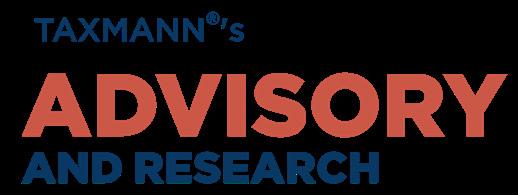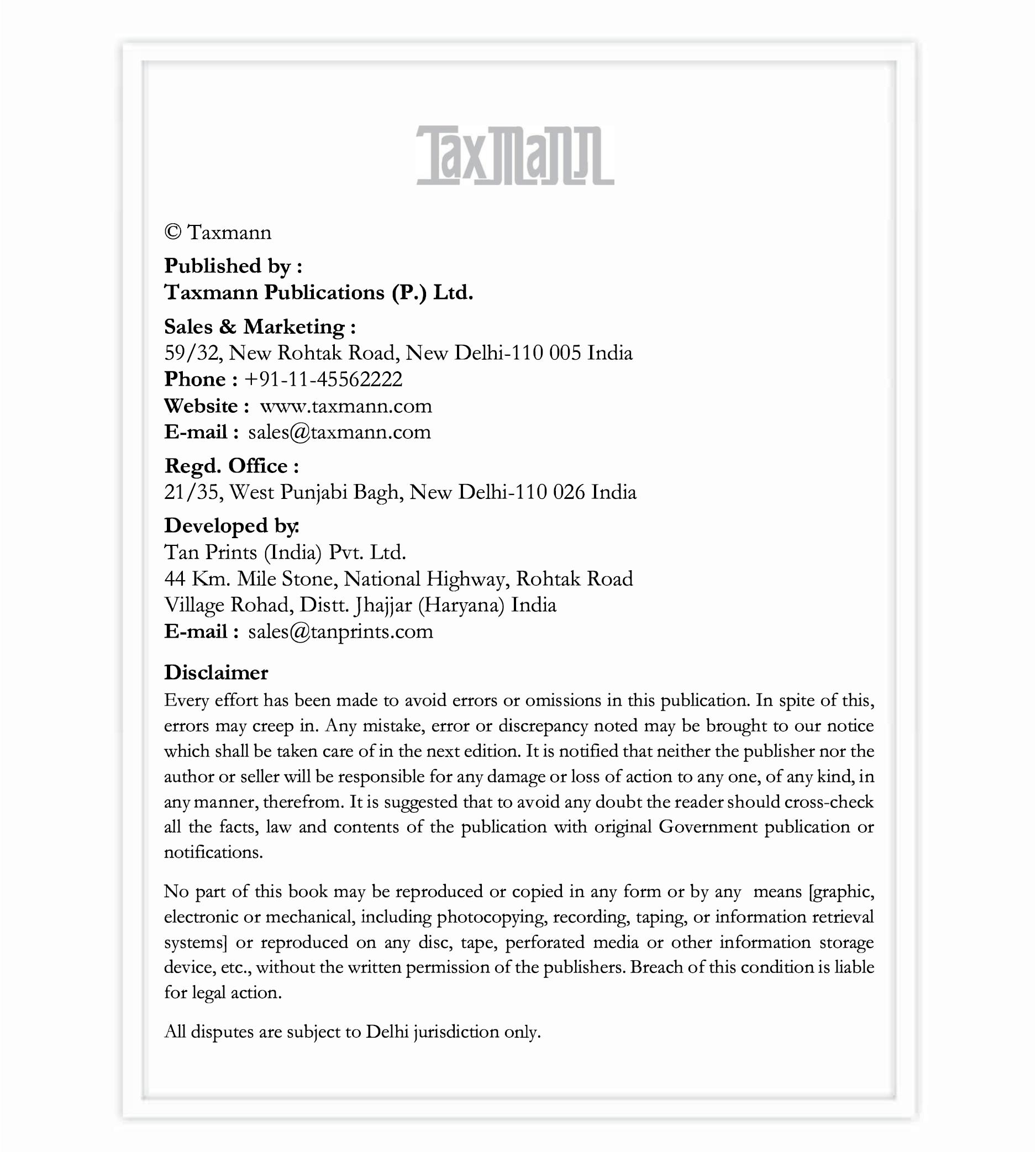

Key Highlights of SEBI’s Board Meeting

Simplifying IPO Process
Streamlined QIP Disclosures for Listed Entities
Special Framework for PSU Voluntary Delisting
June 2025
Reporting & Allotment Norms for REITs and InvITs
Revised Framework for Angel Funds 01 04 06 05 03 02
New Co-Investment Scheme for Category I & II AIFs

Key Highlights of SEBI’s Board Meeting

Simplifying IPO Process
Streamlined QIP Disclosures for Listed Entities
Special Framework for PSU Voluntary Delisting
June 2025
Reporting & Allotment Norms for REITs and InvITs
Revised Framework for Angel Funds 01 04 06 05 03 02
New Co-Investment Scheme for Category I & II AIFs

1. Introduction
Imagine a startup—say, BlueVolt Solutions—that has grown steadily and is now preparing to go public. Its founders have been granted ESOPs over the years as part of a long-term incentive plan. Meanwhile, early investors, such as venture capital funds, hold compulsorily convertible securities (CCS) allotted under a court-approved merger scheme.
Until now, these stakeholders faced regulatory hurdles at the IPO stage. Equity shares arising from CCS under such schemes were not eligible for Offer for Sale (OFS) unless they complied with a mandatory holding period criteria, restricting early investor exits. Simultaneously, promoters were barred from holding or being granted share-based benefits such as ESOPs. If such benefits existed at the time of filing the Draft Red Herring Prospectus (DRHP), they had to be liquidated—causing friction for founder-promoters and undermining the incentive structure right before listing.
To address these practical concerns, SEBI, in its 210th board meeting held on June 18, 2025, approved sweeping reforms across the capital market framework. These include critical relaxations around IPO norms, delisting of PSUs, the Social Stock Exchange, REITs/InvITs, and operational frameworks for merchant bankers, debenture trustees, and angel funds— setting the stage for a more inclusive, agile, and innovation-friendly securities market.
2. Simplifying IPO Process – OFS, MPC, and ESOP Changes
One of the key areas addressed by SEBI was the rigidity in regulations impacting public issues, particularly those undergoing restructuring, reverse flipping (shifting the country of incorporation from a foreign jurisdiction to India).
• Equity Shares from CCS under Approved Scheme Eligible for OFS – Previously, equity shares arising out of Compulsorily Convertible Securities (CCS) received under a court or tribunal approved scheme were not eligible for inclusion in Offer for Sale. The amendment allows these shares to be eligible, thus enabling wider investor participation.
• Contribution to Minimum Promoter Contribution (MPC) – Relevant entities like AIFs, foreign venture capital investors, banks, and insurance companies are now allowed to contribute equity shares arising from CCS conversions towards MPC, aligning their rights with those of promoters.
• ESOP Retention by Founders – Founders designated as promoters can now retain or exercise ESOPs granted at least a year before the DRHP filing. Earlier, they were forced to liquidate these benefits before going public, impacting employee retention and founder incentives.
3.
Comments
SEBI is slowly recognising the growing role of convertible securities in the Indian corporate world and the startup ecosystem. Recent approvals help streamline the public offering process by removing some unnecessary restrictions placed on specific types of securities—restrictions that aren’t usually applied to regular ones. This shift could make fundraising easier and more efficient for companies using such instruments.
Wider Demat Mandate for Pre-IPO Stakeholders
To promote transparency and reduce legal and operational risks associated with physical securities, SEBI has expanded the scope of mandatory dematerialisation before DRHP filing.
Now, in addition to promoters, entities like promoter group members, KMPs, senior management, QIBs, directors, and shareholders with special rights must also dematerialise their holdings. This shift aligns with SEBI’s long-term goal of achieving 100% demat environment for listed companies.
Comments
Dematerialisation has become a hot topic in recent months, especially after it was made mandatory for certain private companies under the Companies Act, 2013. Given this backdrop, it became necessary to extend the mandate to listed companies as well. Typically, stricter norms are first applied to listed companies, followed by unlisted public companies and then private companies. However, dematerialisation has been an exception. So far, certain private and unlisted public companies were covered, while in listed companies, only promoter holdings were required to be dematerialised. While this move will bring additional costs and compliance requirements before public issues, it is undoubtedly the need of the hour.
4. Streamlined QIP Disclosures for Listed Entities
Recognising the availability of public domain data for listed entities, SEBI has simplified placement documents for Qualified Institutional Placements (QIPs).
Disclosures can now be summarised. Risk factors are now limited to issue-specific and material risks, with generic risks omitted. Financial data need not include complete statements but may provide summaries.
Comments
This move significantly reduces the compliance burden on listed entities and helps investors focus on key, relevant information. By eliminating repetitive and generic disclosures, the QIP process becomes faster, clearer, and more efficient.
5. Special Framework for PSU Voluntary Delisting
To ease delisting of PSUs with high government holding but low public float, SEBI has introduced a new framework:
(a) PSUs (excluding banks, NBFCs, and insurers) with 90%+ government/PSU holding can now delist via a fixed price method, with a mandatory 15% premium over the floor price.
(b) The requirement of obtaining two-thirds approval from public shareholders is waived off.
(c) Unclaimed proceeds post-delisting will be kept in an exchange account for 7 years, after which they will be moved to the Investor Education and Protection Fund (IEPF).
5.1. What is Fixed Price Method?
In a Fixed Price Delisting, the acquirer (usually the promoter or promoter group) offers to buy shares from public shareholders at a pre-determined fixed price, instead of discovering the price through reverse book building.
5.2. Floor Price Under the Relaxed Delisting Route
The floor price shall be at least the highest of the following:
(a) The volume-weighted average price paid or payable by the acquirer for acquisitions during the 52 weeks immediately preceding the reference date;
(b) The highest price paid or payable for any acquisition by the acquirer during the 26 weeks immediately preceding the reference date;
(c) The price determined by a joint valuation report from two independent registered valuers, based on various valuation parameters as on the reference date.
Comments
In certain PSUs with low public shareholding, shares are often traded at prices that do not truly reflect the company’s performance, net worth, or profitability. This may be driven more by the perceived government backing than by actual fundamentals. When such PSUs consider delisting, the current requirement of using the 60-day VWAP often results in inflated and unrealistic exit valuations, making the delisting financially burdensome.
6. Expanded Framework for Social Stock Exchange (SSE)
To enable a more diverse set of social enterprises to participate in capital markets:
(a) Expanded Definition of NPOs – Inclusion of trusts (registered under the Indian Registration Act, 1908), charitable societies (under state laws), and companies registered under Section 25 of the Companies Act, 1956, within the definition of NPOs.
(b) Introduction of SIAO – The term Social Impact Assessment Organization (SIAO) replaces social impact assessment firm to adopt a profession-agnostic approach.
o Must be empanelled with ICAI, ICSI, or ICMAI.
o Required to have at least two full-time Social Impact Assessors with minimum 3 years’ experience.
o Assessors must sign reports if SIAO lacks 3-year track record.
(c) Fundraising Timeline for Social Enterprises – Social enterprises must raise funds via SSE within two years of registration, or their registration will lapse.
(d) Expansion of Eligible Activities – Eligible activities aligned with Schedule VII of the Companies Act (CSR activities) for better fundraising scope.
(e) Wider Target Segments – SEBI may include additional underserved/less privileged segments or underperforming regions under the eligibility criteria for social enterprises.
(f) Eased Eligibility for NPOs – The condition of conducting a certain percentage of eligible activities is now limited only to for-profit social enterprises.
(g) Separate Disclosure Requirements – Annual disclosures split into financial and non-financial categories, each with its own timeline.
(h) Self-Reporting Permitted – NPOs can submit annual impact reports even if they haven’t raised funds via the SSE.
(i) NPOs can submit annual impact reports even if they haven’t raised funds via the SSE.
Example – A 30-year-old NGO working in tribal education, previously left out, can now raise funds on the SSE due to relaxed eligibility.
7.
Comments
These are much-needed changes in the Social Stock Exchange segment. The recognition of additional entities is a welcome step, as it now inclusively brings in older organisations that have long been engaged in the social service sector. Furthermore, the expansion in the scope of eligible activities enables a broader range of organisations—many of which already existed and operated in this space but were previously restricted due to regulatory limitations—to now participate and raise funds more effectively. In addition, the other changes—such as revised disclosure norms, fundraising timelines, and empanelment of impact assessment bodies—will contribute to better governance and help achieve the broader objective of the SSE framework.
Merchant Bankers – Expanded Role and Clarity
Initially, SEBI had proposed that merchant bankers (MBs) hive off activities not regulated by SEBI into a separate legal entity. However, following stakeholder feedback and internal review, this requirement has now been relaxed. MBs are permitted to undertake the following additional activities:
(a) Activities regulated by other Financial Sector Regulators (FSRs), provided they comply with the applicable regulatory framework of the concerned FSR.
(b) Fee-based, non-fund-based financial services not covered by SEBI or any FSR, subject to conditions specified by SEBI.
SEBI has also clarified and expanded the list of permitted activities under its regulatory purview, including:
(a) Managing public issues, rights issues, QIPs, and international offerings.
(b) Handling takeovers, buy-backs, delistings, and related advisory services.
(c) Managing private placements, fairness opinions, and compliance activities under various SEBI regulations.
(d) Underwriting and other activities as may be notified by SEBI.
7.1. Categorisation of Merchant Bankers
Merchant Bankers have been classified into two categories based on net worth:
(a) Category 1 – Minimum net worth of Rs. 50 crore; eligible to perform all permitted activities.
(b) Category 2 – Minimum net worth of Rs. 10 crore; eligible for all activities except managing equity issues on the Main Board.
7.2. Additional Regulatory Requirements
(a) Maintaining 25% liquid net worth at all times.
(b) Underwriting limit capped at 20x of liquid net worth.
(c) Minimum cumulative revenue requirement over the last 3 years:
i. Rs. 25 crore for Category 1
ii. Rs. 5 crore for Category 2
iii. Exemption provided for MBs handling only debt/hybrid securities.
To avoid conflict of interest, MBs can only be involved in marketing the issue if any director, KMP, or their relatives hold more than 0.1% stake or shares worth more than Rs. 10 lakh in the issuer.
The Compliance Officer of an MB must be a qualified Company Secretary or Law graduate with two years of experience. Existing officers without these qualifications can continue if they meet the experience and NISM certification requirements.
Comments
The amendment provides merchant bankers with greater operational flexibility by allowing them to undertake activities regulated by other Financial Sector Regulators and certain fee-based services not covered by SEBI, enabling business diversification. It also brings clarity by explicitly listing permitted activities, helping MBs plan better and operate with reduced ambiguity.
8. Debenture Trustees – Strengthened Role & Compliance Clarity
Similar to MBs, SEBI has allowed Debenture Trustees (DTs) to carry out certain non-SEBI regulated activities, following a relaxation of the earlier requirement for hiving off such activities. Permitted non-SEBI activities include:
(a) Activities regulated by other FSRs, subject to their rules.
(b) Fee-based, non-fund-based financial services not covered by SEBI or any FSR, provided SEBI’s conditions are met.
8.1. Other Key Measures for DTs
SEBI has approved additional changes to strengthen the DT framework:
(a) Codification of rights and obligations of DTs and issuers under SEBI’s LODR Regulations, ensuring DTs can fulfil fiduciary duties effectively.
(b) Enabling provisions for model formats for Debenture Trust Deeds (DTDs) under both the DT and NCS Regulations to address inconsistencies in current documentation practices.
(c) Clarification on use of the Recovery Expense Fund (REF) by specifying eligible expenses for reimbursement, simplifying approvals and ensuring efficient usage.
Comments
The amendment grants Debenture Trustees greater operational flexibility by allowing them to undertake certain non-SEBI regulated activities, aligning with the approach taken for Merchant Bankers. It also strengthens the DT framework by codifying rights and obligations under SEBI’s LODR Regulations, introducing model formats for Debenture Trust Deeds to ensure consistency, and clarifying the use of the Recovery Expense Fund for efficient reimbursements.
9. Reporting and Allotment Norms Revised for
REITs and InvITs
SEBI has approved key amendments to the SEBI (Real Estate Investment Trusts) Regulations, 2014 and the SEBI (Infrastructure Investment Trusts) Regulations, 2014. The key measures approved are as follows:
9.1. Clarification on Public Unit Holding
(a) Units held by related parties of the REIT/InvIT, as well as of the sponsor, investment manager/manager, and project manager, will not be treated as “public” unless they are Qualified Institutional Buyers (QIBs).
(b) However, the sponsor group, sponsor, investment manager/manager, and project manager will always be excluded from public unit holding, even if they are QIBs.
9.2. Distribution Flexibility for Holding Company
(a) Negative net distributable cash flows of a Holding Company may now be adjusted against cash received from SPVs before distributing funds to the REIT/InvIT.
(b) Earlier, Holding Companies were required to distribute 100% of SPV cash flows, regardless of their own cash position.
9.3. Alignment
of Reporting Timelines
(a) Timelines for submission of quarterly reports, valuation reports, and board/ trustee submissions are now aligned with financial result submission timelines.
(b) Previously, these reports had varying deadlines, causing compliance inefficiencies.
9.4. Reduction in Minimum Allotment Size for InvITs
(a) The minimum allotment lot in the primary market for privately placed InvITs has been reduced to Rs. 25 lakh, regardless of the asset mix.
(b) Previously, the allotment size ranged from Rs. 1 crore to Rs. 25 crore depending on the asset mix.
Comments
SEBI’s amendments aim to make REITs and InvITs more practical and accessible. Allowing related QIBs to be counted as public unitholders—while still keeping sponsors and key managers excluded—brings clarity to unit classification. The change in distribution rules gives Holding Companies a flexibility to manage cash better, especially during periods of low income. Aligning reporting timelines will help reduce compliance burden. Most importantly, reducing the minimum allotment size for privately placed InvITs to Rs. 25 lakh makes it easier for a wider group of investors to participate.
10. New Co-Investment Scheme Framework for Category I & II AIFs
SEBI has approved amendments to allow Category I and II AIFs to offer Co-Investment Schemes (CIV schemes) under the SEBI (Alternative Investment Funds) Regulations, 2012. Previously, co-investment was only facilitated through the PMS route, which posed operational challenges such as the need for dual registrations and fragmented shareholder structures in investee companies.
Under the new framework, a Co-Investment Scheme (CIV Scheme) refers to a scheme of a Category I or II AIF that enables accredited investors of the same scheme to co-invest in unlisted securities of an investee company where the AIF has already made or proposes to make an investment.
10.1. Key Features of the CIV Scheme
(a) CIV Scheme will be available only to accredited investors of a particular AIF scheme.
(b) A separate CIV scheme shall be created for each co-investment, with safeguards to ensure bona fide use.
(c) Certain regulatory requirements applicable to regular AIF schemes may be relaxed for CIV schemes to ensure flexibility.
Comments
SEBI’s introduction of Co-Investment Schemes (CIV schemes) for Category I and II AIFs simplifies the co-investment process by removing the need to route such investments through PMS. This change addresses earlier operational issues like dual registration and fragmented cap tables in investee companies.
11. Revised Framework for Angel Funds Under AIF Regulations
In light of the abolition of Angel Tax and evolving market conditions, SEBI has also rationalised the regulatory framework for Angel Funds under the AIF Regulations. A major change is that Angel Investors will now be required to be Accredited Investors (AIs). This ensures a standardised and independently verified eligibility process, with dynamic thresholds that are more reflective of current economic realities. Additionally, for the limited purpose of investment in Angel Funds, AIs will now be recognised as Qualified Institutional Buyers (QIBs) under the SEBI ICDR Regulations.
11.1. Key Proposals to Address Risk and Compliance Concerns
(a) Mandatory accreditation of Angel Investors, replacing self-certification.
(b) Grandfathering of prior investments by non-AIs and a one-year glide path for full transition.
(c) Ongoing discussion with the industry to allow lighter regulations for AI-only investment pools, which may become the future model for AIFs.
11.2. Operational and Business Ease Measures for Angel Funds
(a) Investment Limits Revised – Floor reduced from Rs. 25 lakh to Rs. 10 lakh; cap increased from Rs. 10 crore to Rs. 25 crore per investee company.
(b) Concentration Limit Removed – The 25% cap on investment in a single investee company has been eliminated.
(c) Investor Limit Expanded – Contributions can now be accepted from more than 200 accredited investors in a single investment.
(d) Follow-on Investments Allowed – Angel Funds can now invest in a company that was previously a start-up but no longer qualifies as one.
11.3. Additional Safeguards
(a) Each investment opportunity must be offered to all investors, and allocation must follow a process clearly disclosed in the Private Placement Memorandum (PPM).
(b) A minimum “skin in the game” requirement for sponsor/manager: At least 0.5% of investment amount or Rs. 50,000, whichever is higher.
Comments
SEBI’s revised framework for Angel Funds introduces accreditation as a standard eligibility criterion, replacing self-certification and ensuring better investor verification. By recognizing accredited investors as QIBs under ICDR Regulations, SEBI integrates Angel Funds more closely into the institutional investment ecosystem. The relaxation of investment limits, removal of the concentration cap, and expansion of investor participation aim to ease operations and widen funding access for start-ups.
12. Simplification of Disclosure Document Format for Portfolio Managers
SEBI approved the deletion of Schedule V from the SEBI (Portfolio Managers) Regulations, 2020, which contained the format of the ‘Model Disclosure Document’. The disclosure format will now be issued through a SEBI circular instead of regulation amendments.
Disclosure will be restructured into Dynamic and Static sections:
(a) Dynamic – Frequently updated content.
(b) Static – Less frequently changed content.
Comments
SEBI has simplified the disclosure framework for Portfolio Managers by removing the model format from the regulations and shifting it to a circular-based approach.
13. Mandatory Dematerialisation for Certain Corporate Actions
SEBI has mandated that issuance of securities for corporate actions like split/consolidation or schemes of arrangement by listed entities must be done only in dematerialised form.
Comments
The amendment aligns with the broader objective of full demat-based market operations, reduces the risk of fraud or loss associated with physical securities, and streamlines post-issue processes for both issuers and investors.
14. Simplified Norms for Share Transfer Communication
and Deposit Compliance
SEBI has removed the requirement for listed entities to maintain proof of delivery under Para B(1) and B(2) of Schedule VII of the LODR Regulations. This applied to communications related to signature mismatches during share transfers. Entities will now only need to retain proof of dispatch, as delivery records are already maintained by postal and courier services for up to six months.
Separately, SEBI has allowed Investment Advisers (IAs) and Research Analysts (RAs) to use liquid mutual funds and overnight funds in place of bank fixed deposits for meeting the deposit requirements under their respective regulations. This move follows industry representations citing challenges in FD creation and lien marking across banks.
Comments
The removal of the delivery proof requirement reduces unnecessary documentation burden for listed entities, without compromising on audit trail integrity, as delivery details can still be verified through service providers if needed.
For IAs and RAs, allowing mutual fund units as eligible collateral introduces flexibility and operational ease. It also keeps the deposit mechanism within the securities ecosystem, improving efficiency and digital access.
15. Final Thought
These reforms mark a significant step in making India’s capital markets more agile, inclusive, and investor-friendly. From easing IPOs to empowering merchant bankers and social enterprises, SEBI is shaping a capital market ecosystem ready for the next leap.
Change is not just regulatory; it’s strategic.

About Us

Founded 1972


Evolution From a small family business to a leading technology-oriented Publishing/Product company


Expansion

Launch of Taxmann Advisory for personalized consulting solutions
Our Vision

Aim
Achieve perfection, skill, and accuracy in all endeavour

Growth
Evolution into a company with strong independent divisions: Research & Editorial, Production, Sales & Marketing, and Technology

Future
Continuously providing practical solutions through Taxmann Advisory
Our Strength
Core
Editorial and Research Division
Team
Over 200 motivated legal professionals (Lawyers, Chartered Accountants, Company Secretaries)
Expertise
Monitoring and processing developments in judicial, administrative, and legislative fields with unparalleled skill and accuracy
Impact
Helping businesses navigate complex tax and regulatory requirements with ease

Taxmann Today
Legacy Innovation Commitment
Over 60 years of domain knowledge and trust
Technology-driven solutions for modern challenges
Ensuring perfection, skill, and accuracy in every solution provided
Our Core Domain Areas
Income Tax
Corporate Tax Advisory
Trusts & NGO Consultancy
TDS Advisory
Global Mobility Services
Personal Taxation
Training
Due Diligence
Foreign Exchange Management Laws
Due Dilligence
Advisory Services
Assistance in compounding of offences
Transactions Services
Investment outside India
Your Partners for Frictionless Advice
Goods
Transaction Advisory
Business Restructuring
Classification
Due Diligence
Training
Advisory
Trade Facilitation Measures
Corporate
Corporate Structuring
VAT Advisory
Residential Status
A Glimpse of the People Behind Taxmann

Naveen Wadhwa
Research and Advisory [Corporate and Personal Tax]
Chartered Accountant (All India 24th Rank)
14+ years of experience in Income tax and International Tax
Expertise across real estate, technology, publication, education, hospitality, and manufacturing sectors
Contributor to renowned media outlets on tax issues

Vinod K. Singhania Expert on Panel | Research and Advisory (Direct Tax)
Over 35 years of experience in tax laws
PhD in Corporate Economics and Legislation
Author and resource person in 800+ seminars

V.S. Datey Expert on Panel | Research and Advisory [Indirect Tax]
Holds 30+ years of experience
Engaged in consulting and training professionals on Indirect Taxation
A regular speaker at various industry forums, associations and industry workshops
Author of various books on Indirect Taxation used by professionals and Department officials

Manoj Fogla Expert on Panel | Research and Advisory [Charitable Trusts and NGOs]
Over three decades of practising experience on tax, legal and regulatory aspects of NPOs and Charitable Institutions
Law practitioner, a fellow member of the Institute of Chartered Accountants of India and also holds a Master's degree in Philosophy
PhD from Utkal University, Doctoral Research on Social Accountability Standards for NPOs
Author of several best-selling books for professionals, including the recent one titled 'Trust and NGO's Ready Reckoner' by Taxmann
Drafted publications for The Institute of Chartered Accountants of India, New Delhi, such as FAQs on GST for NPOs & FAQs on FCRA for NPOs.
Has been a faculty and resource person at various national and international forums

the UAE
Chartered Accountant (All India 36th Rank)
Has previously worked with the KPMG

S.S. Gupta Expert on Panel | Research and Advisory [Indirect Tax]
Chartered Accountant and Cost & Works Accountant
34+ Years of Experience in Indirect Taxation
Bestowed with numerous prestigious scholarships and prizes
Author of the book GST – How to Meet Your Obligations', which is widely referred to by Trade and Industry

Sudha G. Bhushan Expert on Panel | Research and Advisory [FEMA]
20+ Years of experience
Advisor to many Banks and MNCs
Experience in FDI and FEMA Advisory
Authored more than seven best-selling books
Provides training on FEMA to professionals
Experience in many sectors, including banking, fertilisers, and chemical
Has previously worked with Deloitte
Contact Us
Taxmann Delhi
59/32, New Rohtak Road
New Delhi – 110005 | India
Phone | 011 45562222
Email | sales@taxmann.com
Taxmann Mumbai
35, Bodke Building, Ground Floor, M.G. Road, Mulund (West), Opp. Mulund Railway Station Mumbai – 400080 | Maharashtra | India
Phone | +91 93222 47686
Email | sales.mumbai@taxmann.com
Taxmann Pune
Office No. 14, First Floor, Prestige Point, 283 Shukrwar Peth, Bajirao Road, Opp. Chinchechi Talim, Pune – 411002 | Maharashtra | India
Phone | +91 98224 11811
Email | sales.pune@taxmann.com
Taxmann Ahmedabad
7, Abhinav Arcade, Ground Floor, Pritam Nagar Paldi
Ahmedabad – 380007 | Gujarat | India
Phone: +91 99099 84900
Email: sales.ahmedabad@taxmann.com
Taxmann Hyderabad
4-1-369 Indralok Commercial Complex Shop No. 15/1 – Ground Floor, Reddy Hostel Lane Abids Hyderabad – 500001 | Telangana | India
Phone | +91 93910 41461
Email | sales.hyderabad@taxmann.com
Taxmann Chennai No. 26, 2, Rajan St, Rama Kamath Puram, T. Nagar
Chennai – 600017 | Tamil Nadu | India
Phone | +91 89390 09948
Email | sales.chennai@taxmann.com
Taxmann Bengaluru
12/1, Nirmal Nivas, Ground Floor, 4th Cross, Gandhi Nagar
Bengaluru – 560009 | Karnataka | India
Phone | +91 99869 50066
Email | sales.bengaluru@taxmann.com
Taxmann Kolkata Nigam Centre, 155-Lenin Sarani, Wellington, 2nd Floor, Room No. 213
Kolkata – 700013 | West Bengal | India
Phone | +91 98300 71313
Email | sales.kolkata@taxmann.com
Taxmann Lucknow
House No. LIG – 4/40, Sector – H, Jankipuram Lucknow – 226021 | Uttar Pradesh | India
Phone | +91 97924 23987
Email | sales.lucknow@taxmann.com
Taxmann Bhubaneswar
Plot No. 591, Nayapalli, Near Damayanti Apartments
Bhubaneswar – 751012 | Odisha | India
Phone | +91 99370 71353
Email | sales.bhubaneswar@taxmann.com
Taxmann Guwahati
House No. 2, Samnaay Path, Sawauchi Dakshin Gaon Road
Guwahati – 781040 | Assam | India
Phone | +91 70866 24504
Email | sales.guwahati@taxmann.com
